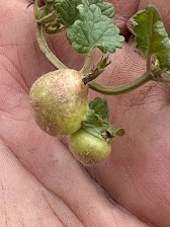
 1
1




 1
1




My books, movies, videos, podcasts, events ... the big collection of paul wheaton stuff!
 2
2




Principal - Terra Phoenix Design
http://TerraPhoenixDesign.com








My books, movies, videos, podcasts, events ... the big collection of paul wheaton stuff!
 2
2








My books, movies, videos, podcasts, events ... the big collection of paul wheaton stuff!
 1
1




 1
1




 1
1




Brenda
Bloom where you are planted.
http://restfultrailsfoodforestgarden.blogspot.com/








Brenda
Bloom where you are planted.
http://restfultrailsfoodforestgarden.blogspot.com/








Brenda
Bloom where you are planted.
http://restfultrailsfoodforestgarden.blogspot.com/








Brenda
Bloom where you are planted.
http://restfultrailsfoodforestgarden.blogspot.com/




[img]http://i109.photobucket.com/albums/n52/havlik1/permie%20pics2/permiepotrait3pdd.jpg[/img]
"One cannot help an involuntary process. The point is not to disturb it. - Dr. Michel Odent




Brenda
Bloom where you are planted.
http://restfultrailsfoodforestgarden.blogspot.com/












Brenda
Bloom where you are planted.
http://restfultrailsfoodforestgarden.blogspot.com/
 1
1




hardly ever leave the farm- don't want to- the internet saves me a million road, air and sea miles, provides at least 25 extra lifetimes, connects to friends who can stay on the subject, and gives me access to the brightest people conscious......
http://www.gardenfarm.biz




Brenda
Bloom where you are planted.
http://restfultrailsfoodforestgarden.blogspot.com/




"the qualities of these bacteria, like the heat of the sun, electricity, or the qualities of metals, are part of the storehouse of knowledge of all men. They are manifestations of the laws of nature, free to all men and reserved exclusively to none." SCOTUS, Funk Bros. Seed Co. v. Kale Inoculant Co.




hardly ever leave the farm- don't want to- the internet saves me a million road, air and sea miles, provides at least 25 extra lifetimes, connects to friends who can stay on the subject, and gives me access to the brightest people conscious......
http://www.gardenfarm.biz









Paul Cereghino- Ecosystem Guild
Maritime Temperate Coniferous Rainforest - Mild Wet Winter, Dry Summer








"the qualities of these bacteria, like the heat of the sun, electricity, or the qualities of metals, are part of the storehouse of knowledge of all men. They are manifestations of the laws of nature, free to all men and reserved exclusively to none." SCOTUS, Funk Bros. Seed Co. v. Kale Inoculant Co.








Synergy wrote:I better get better at this so I can learn how to preserve for winter, either that or learn how to hibernate .
"the qualities of these bacteria, like the heat of the sun, electricity, or the qualities of metals, are part of the storehouse of knowledge of all men. They are manifestations of the laws of nature, free to all men and reserved exclusively to none." SCOTUS, Funk Bros. Seed Co. v. Kale Inoculant Co.





hardly ever leave the farm- don't want to- the internet saves me a million road, air and sea miles, provides at least 25 extra lifetimes, connects to friends who can stay on the subject, and gives me access to the brightest people conscious......
http://www.gardenfarm.biz








 I was at friends house and they were complaining about blackberry spreading where they don't want it. I just looked at the place and think to myself, what was that guy on forum saying... oh yes, just go and do it...
I was at friends house and they were complaining about blackberry spreading where they don't want it. I just looked at the place and think to myself, what was that guy on forum saying... oh yes, just go and do it...  And yea, it's so much easier to go small at first, it's really easy to do the big shoots after. For now the place is clean, from now on we will leave couple of main roots to give us one or two strongest shoots and the rest will be cut regularly. Not so much work when you think about it.
And yea, it's so much easier to go small at first, it's really easy to do the big shoots after. For now the place is clean, from now on we will leave couple of main roots to give us one or two strongest shoots and the rest will be cut regularly. Not so much work when you think about it.







hardly ever leave the farm- don't want to- the internet saves me a million road, air and sea miles, provides at least 25 extra lifetimes, connects to friends who can stay on the subject, and gives me access to the brightest people conscious......
http://www.gardenfarm.biz




My books, movies, videos, podcasts, events ... the big collection of paul wheaton stuff!














|
There will be plenty of time to discuss your objections when and if you return. The cargo is this tiny ad:
the permaculture bootcamp in winter (plus half-assed holidays)
https://permies.com/t/149839/permaculture-projects/permaculture-bootcamp-winter-assed-holidays
|






